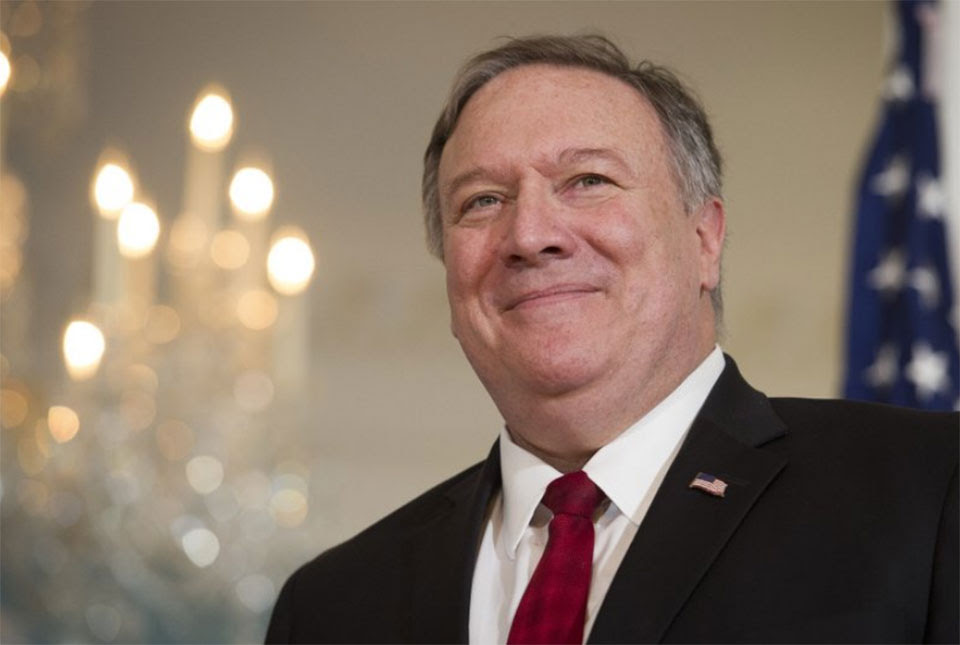By — Shyamal Sinha
Nepal is home to 38,490 refugees officially recognized by the United Nations High Commissioner for Refugees (UNHCR). Tibetan and Bhutanese refugees account for a large majority of Nepal’s refugee population.
The US Secretary of State Mike Pompeo called on Nepal Prime Minister KP Sharma Oli on completion of the latter’s one year tenure at the office.
In his message, the US Secretary of State made a special mention regarding repatriation of Tibetan refugees. He expressed hope that Nepal would practice the international principle of ‘non-refoulement in the case of Tibetan refugees.
He urged Nepal to participate in the Indo-Pacific strategy launched by US to ensure a free and open Indo-Pacific region stating that the strategy is in the Nepal’s interest.
“Recognizing your own experience as a political prisoner, I welcomed Foreign Minister Gyawali’s reassurance that Nepal would continue to protect the rights of Tibetans in Nepal, particularly the principle of non-refoulement, which ensures that individuals will not be returned to a country where they face serious threats to their life or their religious, cultural, and linguistic freedoms,” reads Pompeo’s statement.
Pompeo added that the Indo-Pacific strategy would also be beneficial for Nepal in safeguarding its national interests.

“As Nepal strives to realize the fruits of peace and political stability, I believe it will become increasingly apparent that the US emphasis on a free and open Indo-Pacific region, providing for the prosperity, sovereignty, and security of every country, is very much in Nepal’s own interest,” Pompeo’s statement reads further.
In view of his meeting with Nepal Foreign Minister Pradeep Gyawali, Pompeo said, “My meeting with Foreign Minister Gyawali consolidated some important commitments, including the paramount importance of ensuring the $500 million Millennium Challenge Corporation Compact moves forward according to the agreed-upon principles.”
The US Secretary of State also appreciated Gyawali’s assurance that the Nepal Government would fulfill its international obligations including the binding agreements concerning US-Nepal bilateral relations and the UN Security Council sanctions compelling North Korea to abandon its nuclear program
Experts opine that US Secretary of State’s congratulatory message to Nepali Prime Minister is rare, further signaling the importance US is giving to its relations with Nepal.
Nepal is also planning to initiate talks with the Bhutan Government for the repatriation of Bhutanese refugees in Nepal. Let’s see what steps the Nepal Government will take to address both the refugee situations.
In the years 1959, 1960, and 1961 following the 1959 Tibetan uprising and exile of the Dalai Lama, over 20,000 Tibetans migrated to Nepal. Since then many have emigrated to India or settled in refugee camps set up by the International Committee of the Red Cross, the Government of Nepal, the Swiss Government, Services for Technical Co-operation Switzerland, and Australian Refugees Committee.
Those who arrived before 1989 were issued refugee ID cards and benefited from de facto economic integration; however, more recent arrivals have no legal status and cannot own property, businesses, vehicles, or be employed lawfully. Many of these recent arrivals transit through Nepal on their way to India.
Nepal is not party to the 1951 UN Convention or 1967 Protocol Relating to the Status of Refugees and there are no national laws to grant asylum or refugee status.
with input from – Nepal Sansar












